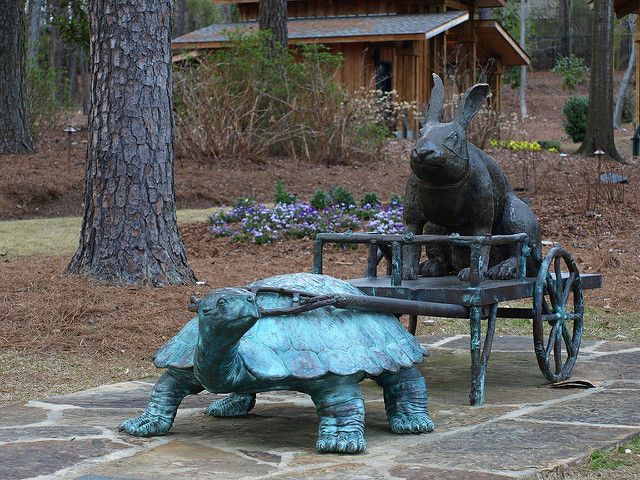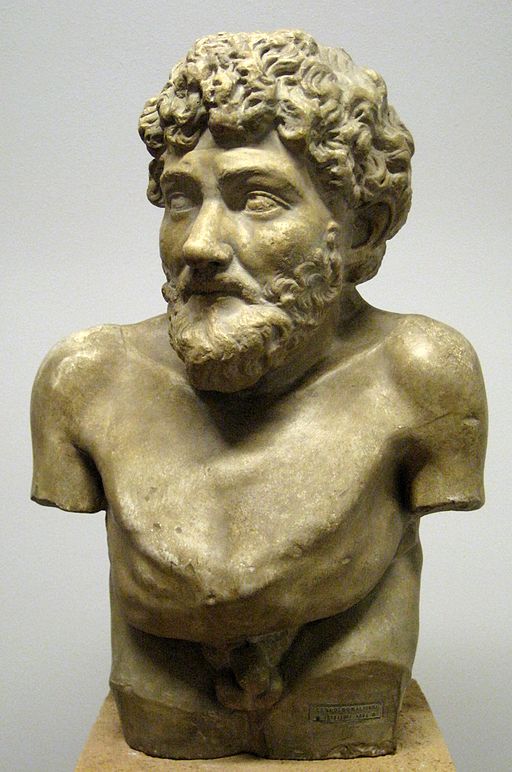Looking for Aesop in AESOP: call for reflections
AESOP is broad and diverse community of scholars and practitioners at diverse stages in their career(s). The AESOP 2018 conference was a strong, engaged and engaging reflection of this diversity, which finds expression in the different thematic groups and wide range of events which AESOP members organise and participate in. Yet the diversity of what spatial planning does might lead to a sort of identify crisis for planning as a discipline, as mentioned at the 13th Head of Planning Schools meeting in Newcastle last spring. Looking at this diversity of research and industry practices in spatial planning, can we speak of a particular identity for the AESOP community? Is its name just an acronym or does it tie in with a deeper tradition of perceiving and experiencing the world? Or is it rather so that AESOP's identity is a recursive one, an endless flow of contingent, amorphous expression and self-reconstruction?
Historians debate whether Aesop was an Ancient Greek story teller, or simply a style of popular story telling, in the manner of fables. The fable about the hare and the tortoise is probably one of the most famous ones. Here is an extensive selection of Aesop’s fables.

The Tortoise and the Hare: a classic fable that has been retold over the centuries. What does it have to say about the dynamics of the neoliberal university and economy, or about the value of slowlife or slow academia? Picture credit: “Tortoise and the Hare” taken by Patrick Q’s sister on Flickr, Creative Commons Non-Commercial Attribution
From Plato's Republic, Homer's Iliad and Odyssey, the writings of Aristotle and the minimalist lifestyle and Cynic philosophy of Diogenes, the stories, myths and philosophy of Ancient Greece have had a tremendous influence on European thoughts and worldviews to this very day, alongside numerous sciences and other aspects of Ancient Greek society. That is not even to mention myths, philosophy, spirituality and scientific approaches from other parts of the Ancient World, which have also travelled wide and far.
Guiding questions for concise, reflective contributions to the blog would be:
- How much of the values from Ancient Greece and other parts of the world live on in AESOP?
- How do some of the values from the Ancient World shape your own contribution to the AESOP community?
You are warmly invited to share your reflections in contributions that span anything from 100 to 1000 words, either as a short response to this two-question online survey (https://www.surveymonkey.co.uk/r/3TNN6PV), or as a more developed blog post to:
Looking forward to hearing from your muse!

Hellenistic statue claimed to depict Aesop, Art Collection of Villa Albani, Rome. Picture by Shakko, Creative Commons Share-Alike Attribution 3.0.
When you subscribe to the blog, we will send you an e-mail when there are new updates on the site so you wouldn't miss them.


Comments 5
[…] ← Looking for Aesop in AESOP: call for reflections […]
[…] call for blog posts entitled ‘ Looking for AESOP’ seeks to generate reflective posts about the ways in which the work of AESOP and YA members has […]
[…] reiterates an important question for this new decade: Where is Aesop in AESOP? Here is a renewed opportunity to share your experience and reflections about the moral, […]
[…] sustainability, perhaps we also need to learn how to ‘make haste slowly‘. See this call for blog posts inspired by Aesop the ancient Greek story-teller, author of the famous fable of the ‘hare and tortoise’. […]
[…] AESOP Young Academics network (Association of European Schools of Planning), I show that ancient values and engineering can help restore a healthier and more balanced approach to life, productivity, […]